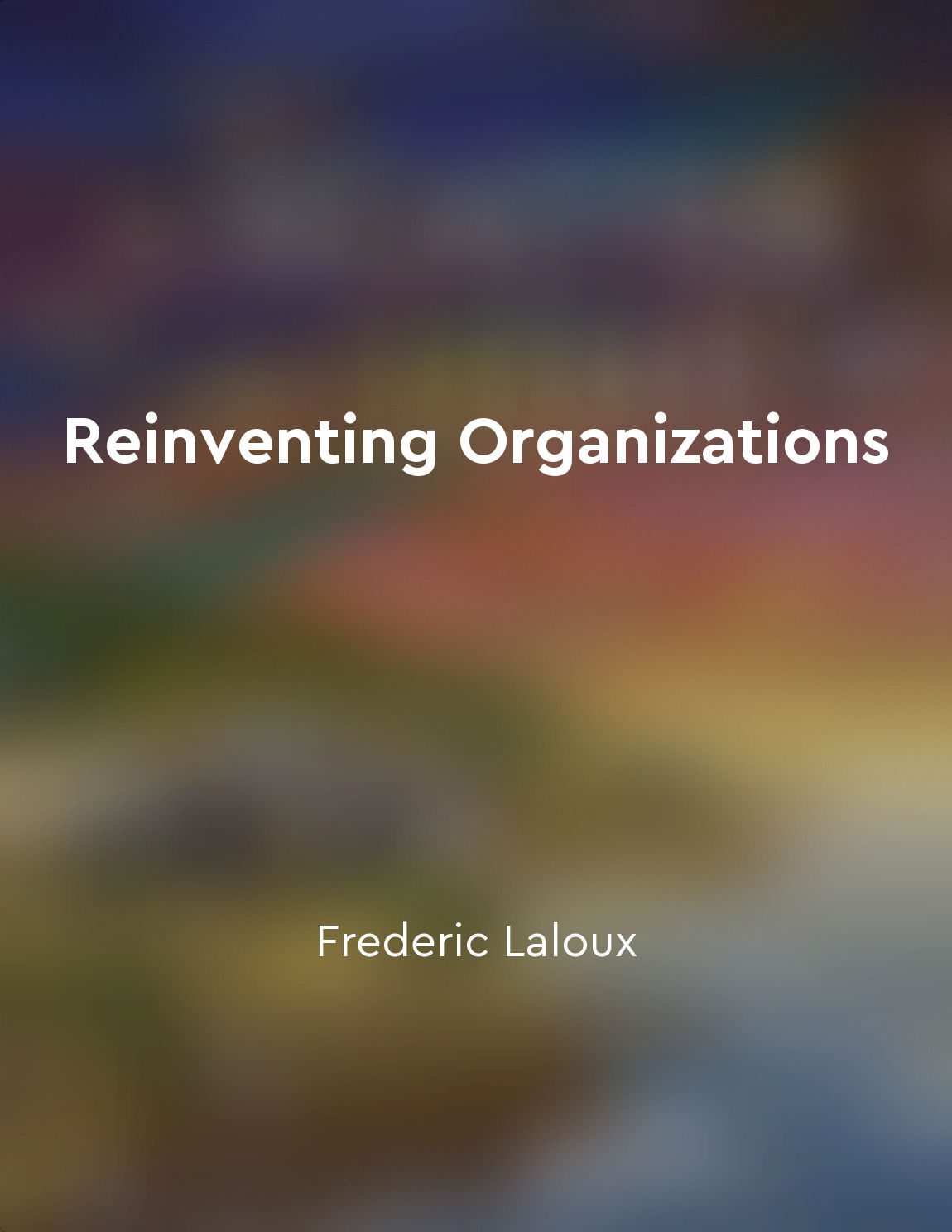Decentralized decisionmaking fosters innovation and adaptability from "summary" of Reinventing Organizations by Frederic Laloux
Decentralized decision-making is like a breath of fresh air for organizations seeking to break free from the rigid structures of the past. When decisions are made closer to the action, innovation thrives. By distributing decision-making power across the organization, individuals are empowered to act quickly and creatively in response to changing circumstances. This agility is a key ingredient for adaptability in today's fast-paced world. In traditional organizations, decision-making is often centralized at the top, resulting in a slow and bureaucratic process that stifles innovation. In contrast, decentralized decision-making allows for ideas to flow freely from all levels of the organization, leading to a rich tapestry of perspectives and solutions. When employees are trusted to make decisions autonomously, they are more likely to take risks and think outside the box. Furthermore, decentralized decision-making fosters a culture of ownership and accountability. When individuals have the authority to make decisions that impact their work, they are more invested in the outcomes. This sense of ownership leads to a greater commitment to the organization's success and a willingness to go above and beyond to achieve it. Additionally, decentralized decision-making enables organizations to tap into the collective intelligence of their workforce. By empowering employees to make decisions based on their expertise and experience, organizations can leverage the diverse skills and knowledge within their ranks. This collaborative approach not only fosters innovation but also builds a strong sense of community and cohesion among team members.- Decentralized decision-making is a powerful tool for organizations looking to stay ahead of the curve in today's rapidly changing business landscape. By providing individuals with the autonomy and freedom to innovate, organizations can adapt more quickly to challenges and seize new opportunities as they arise. This shift towards a more decentralized model of decision-making is not just a trend; it is a fundamental shift in how organizations operate in the 21st century.
Similar Posts
Set boundaries to protect your worklife balance
To maintain a healthy work-life balance, it is essential to establish clear boundaries between your professional and personal l...
Encourage collaboration and teamwork
In order to foster a culture of collaboration and teamwork within an organization, it is essential to create an environment whe...
Celebrate both individual and team achievements
Celebrating both individual and team achievements is a crucial element in building a successful and high-performing team. It is...

Creating a fun and engaging work environment
Creating a fun and engaging work environment is crucial for fostering a positive corporate culture and boosting employee morale...
Seek balance in all aspects of life
The concept of seeking balance in all aspects of life is not a new idea. It has been discussed and debated for centuries by phi...
Ensuring a healthy planet for all
The idea of a healthy planet is more than just a lofty goal—it is a necessity for the survival of all living things. The health...

Prioritize selfcare to maintain well-being
In order to be the smartest person in the room, you must prioritize self-care to maintain your well-being. This means taking ca...

Trust is a foundational principle in Teal organizations
Trust is the invisible thread that holds everything together in Teal organizations. It is the foundation on which all other pra...
Need for personal accountability
In the emerging world of the Sovereign Individual, the concept of personal accountability takes on a heightened importance. As ...
Their lack of a central leader made them resilient
The absence of a central leader within a decentralized organization allows for a level of resilience that traditional top-down ...

